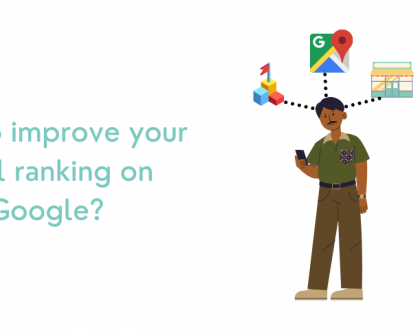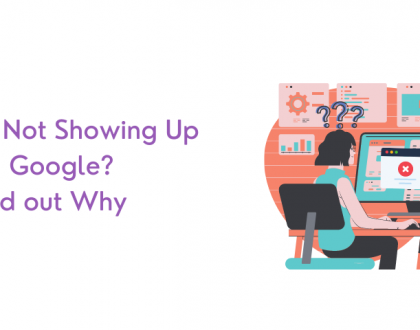App vs Website: Why Big Ecommerce Companies Are Opting For Mobile Apps?

8 Min Read
Most e-commerce companies focus on keeping their mobile app flawless. While a customer can certainly move to a browser, surf through it, and buy products, however, the fact of the matter is that most e-commerce companies are shifting their focus from website to mobile app. You must be wondering what is the benefit of a mobile app over a website? Well, this blog answers this and many more questions like what is the difference between website and web application, and what is the use of mobile apps.
A strong online presence is paramount to making your business reach out to maximum customers. The growing penetration of the internet and the widespread use of social media has pushed businesses to work on enhancing their online presence. While having a website is mandatory nowadays but having a mobile-friendly application has become even more pivotal for generating brand awareness.
Did you know that mobile accounts for more than half of web traffic? Mobile devices generated 54/8% of global website traffic in the first quarter of 2021, and it has been more than 50% since 2017. There has been a consistent increase in the number of mobile app users, and there are several reasons that account for the same. In this blog, we are going to discuss the same, but before going ahead, you should have a look at the following table that highlights the difference between mobile and desktop usage (2020)
| 2019 | 2020 | |||
| Mobile | Desktop | Mobile | Desktop | |
| Visit | 63% | 32% and 5% tablet | 68% | 29% and 3% on Tablet |
| Bounce Rate | 53.49% | 43.11% | 52.11% | 41.69% |
| Average time on the website | 154.37 seconds | 313.99 seconds | 160.13 seconds | 351.54 seconds |
Here it becomes important to focus on whether a mobile app or mobile website, which is going to guarantee you better conversion? Well, the end objective of any organization is to get more conversion, and one of the best ways is to provide the user with user-friendly options. The above table clearly highlights that mobile browsers were able to draw more traffic, but again the average times spent on the website or the bounce rate was high. So, how do you overcome this? This triggered the need for mobile applications that could provide better interaction and faster functionality.
Mobile App History: How it came into the picture.
A mobile app is also called an app or mobile app, which is basically a software application that runs on a laptop, mobile, or tablet. The following section will highlight web app vs mobile app, but before that let us highlight what’s the difference between an app and a website.
When did it all start? Let’s take a glimpse into the history of mobile applications. You should not be surprised with the fact that the world started using mobile apps in 1983, here is a throwback at the history of revolutionary mobile applications
Epoch I: The surge of hardware- To run a mobile application, you need the hardware to support it. So, the foundation stone for the same was made, and in the 1990s and early 2000, the dream of having a mobile application started taking shape. It all actually started in 1993 when Apple introduced a Personal Digital Assistant (PDA) called the Newton Message Pad. This was an instant hit.
IBM too entered the league of mobile applications in 1994 with Simon. And then the name got changed to Palm Pilot in 1996.
But what stood out was the Snake Game introduced by Nokia. The app soon became popular amongst people as it introduced a new kind of gaming experience.
When we talk about hardware, then one of the major developments was Apple’s iPod in 2001 and the Blackberry in 2002.
Epoch II: The App Became More Evident
In 2007, the first generation of the iPhone was launched. And soon we had an Apple store with only 500 applications. This received around 10 million downloads. So it would not be an understatement that this was the year primarily dominated by the applications as the application market started to proliferate. The competition between Android and Apple also grew.
During this epoch, we saw many companies and businesses come up with their own application. Developers also started to use their ideas and expertise to create newer apps every day. And this is how we saw a rise in Angry Birds and Whatsapp.
Epoch III: Apps become universal
In 2012, Google came up with the Google Play Store. This was the year when Angry Bird became the first app to get 1 billion downloads. It became a brand very soon. Then next came Candy Crush. Very soon, Apple announced 1 million apps on the App Store.
In February 2014, Facebook acquired WhatsApp for $19 billion, and this triggered a new wave of change in the mobile app development industry.
App Vs Website
Now the important question that pops up is which is better, mobile application or website. While the website does have a more expansive view, when we talk about mobile applications, it gives a quick glimpse at which one is better for your business?
- Brand recognition – The key objective of any business is to generate more brand awareness, and one of the easiest ways to achieve this is by reaching out to maximum customers. In 2021, there were around 7.01 billion users of mobile phones, and by 2025, it is expected to reach 7.45 billion. With such a whopping number, any business cannot ignore exploring the opportunity to reach out to this customer base. Mobile applications are the easiest way to establish a close to reaching these customers. Mobile app work as your marketing campaign, which directly reaches the target customer and thus generates more traffic.
When a customer downloads an app, that person is already keen on your product, and the application would trigger the buying instinct by making everything available at the click of a button. Moreover, the customers can opt for regular updates from your app and will get to know about the new offers, deals, and discounts through “Push-Notification.”
- Better Conversion – The next benefit you have is an assurance of a better conversion rate. In people spend 90% of their time on mobile apps. Almost all websites now have their mobile applications; these include names like Facebook. Also, with a mobile app, it becomes easier for them to access the information at the click of a button. Moreover, mobile application works better and offers a better user experience as compared to mobile website.
Moreover, apps can be used to send messages and keep the customer engaged. With the app icon, you can easily imprint your brand logo in the mind of the customer.
The apps also retain certain user information, which can be later used to auto-fill certain information like name, email ID, or contact details. This reduces the load time, thus making the checkout process faster and easier.
And this is the reason that around 40.4% of all users buy more e-commerce app, and 45.9% also visit the store more often. But when we take the same scenario into a mobile website, the number is just 40%.
- Direct reach out to the customer– When you have a mobile application, you create an easy and instant way to connect with the customers. The app works 24*7 to promote your brand and establish a strong connection with the customers. However, it becomes important to mention that not every mobile application is user-friendly. One must look into its development part to create flaws and seamless user integration.
- Data Collection – Data is of prime importance for any organization. This useful insight into the demographics and preferences will help in framing strategies that will help the company progress and make useful decisions that will eventually help the company grow and provide customers with the products and services customized to suit their needs.
Related: Optimize your app for the app store.
How is Mobile App Different From Web App
When you start looking around for applications, you will come across mobile apps and web apps. While the functionality and objective of both these apps are the same, i.e. to provide its customers with seamless navigation. There is a line of difference between the two. The following table will show why are apps better than websites apps.
Web app vs App
| Mobile App | Web App |
| Mobile apps are a bit more expensive to develop. Since they are developed on a specific platform, the cost rises. For example, some apps are specific to the iOS platform and others only work on Android. | Developing a web app may not be that costly. |
| Apple apps are built using Objective-C or Swift. Mobile apps are native apps that are platform-specific. | Android apps are built using the Android Studio or Eclipse IDE. |
| There is a standard kit that the developer uses to develop mobile apps. | In the case of Android, you don’t need any standard kit. |
| When it comes to development time, mobile apps take longer. | Web apps have a shorter development time. |
Wrapping it up !!!
With the growing competition in the market, we are witnessing a growing need to adopt strategies that will help the company outshine the others. With mobile applications, it will be easier for companies to establish a direct connection with the customers, thus making it simpler for them to provide an enhanced customer experience. So, if you are still wondering whether you need a mobile app, then the answer is yes. Being in the business you need the best strategy to make your business a success, and when contemplating app vs mobile website or app vs. website, the expert opinion is that you must meticulously use all these options to make your business reach out to maximum customers.
Recommended Posts

How does local SEO help your website rank better on Google?
March 11, 2022

Why Your Website not visible on Google? Find out
March 7, 2022

